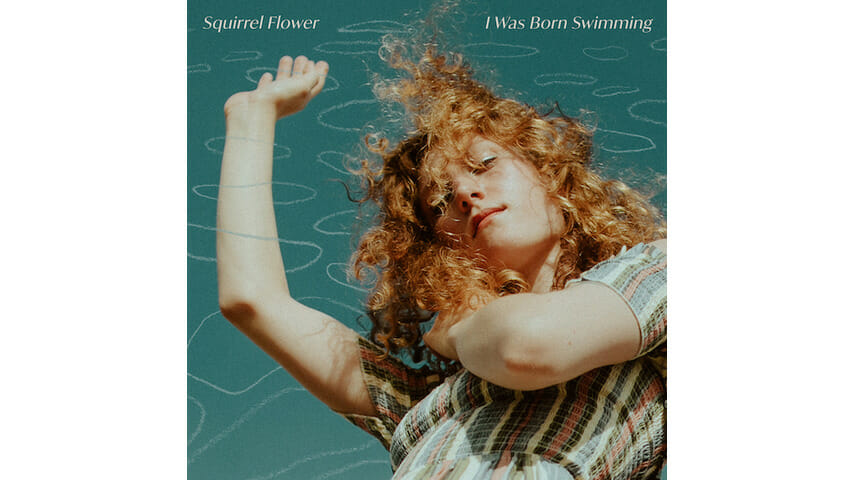Just Be Still With Squirrel Flower’s I Was Born Swimming
Ella Williams’ debut LP under her Squirrel Flower moniker is a quiet yet fierce arrival

The first lines on Squirrel Flower’s third release I Was Born Swimming sound defeatist. “I tried to be lyrical but lyrics failed me,” Ella Williams sings. “So I gave up poetry and ran west on I-80.”
But what follows isn’t an admission of giving up, or quieting down. Maybe she abandoned her notebook for adventure on the particular day she mentions on opening track “I-80,” but, on the whole, lyrics are where she succeeds—not fails—throughout I Was Born Swimming’s swirling 35 minutes. Using what sounds like a range of pedals, Williams captures a specific, slow-burning mood with her guitar, then accentuates the soft parts with her sharp storytelling style. It’s not a startling record whatsoever: I Was Born Swimming simmers, with only the occasional burst of unhinged noise jumping out of the boiling pot like a rogue piece of pasta.
Throughout the album, she achieves an extraordinarily rare balance between thrash and whispers. One song she’s raging, the next she’s nearly meditating. Following a three-minute “Rush” of emotion and unease (which features slick, echoey guitar work not unlike something you’d hear on an early-2000s Kings of Leon release), Williams sails into the relaxed “Belly of the City.” It’s one of many delightful transitions.
Another of those louder moments screams through on rock number “Red Shoulder,” which smolders with a bit of steaming California ’90s alt-rock (though Williams is from the Northeast) before spazzing out with a scream of electric guitars. She makes a sunburn sound sexy, singing “Red on your shoulder / Soft to the touch.” It’s an intimate gesture, but I’d still recommend some aloe and maybe a regimen of SPF 75.
The concept of heat—and its relationship with water—continues to play a prominent role on I Was Born Swimming. The title refers to Williams’ birth; she arrived on Aug. 11, 1996 (the hottest day of that year) netted in a translucent caul sac membrane and surrounded by amniotic fluid. Most of this album seems spent in the lonely hours, from birth to adulthood. On the title track, which closes out the record, Williams sings, “Born swimmin’ in blue water / Didn’t ever need another / Now I live underwater.” She goes on, “Heat’s rising, can you see it shimmer?” It’s only February, but that line is enough to make anyone sweat.
-

-

-

-

-

-

-

-

-

-

-

-

-

-

-

-

-

-

-

-

-

-

-

-

-

-

-

-

-

-

-

-

-

-

-

-

-

-

-

-








































